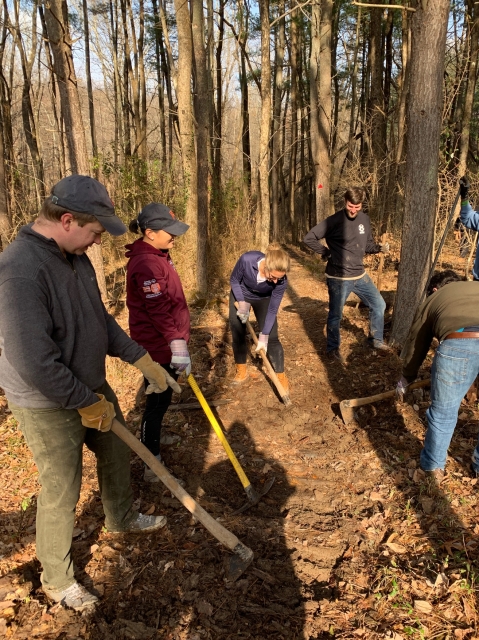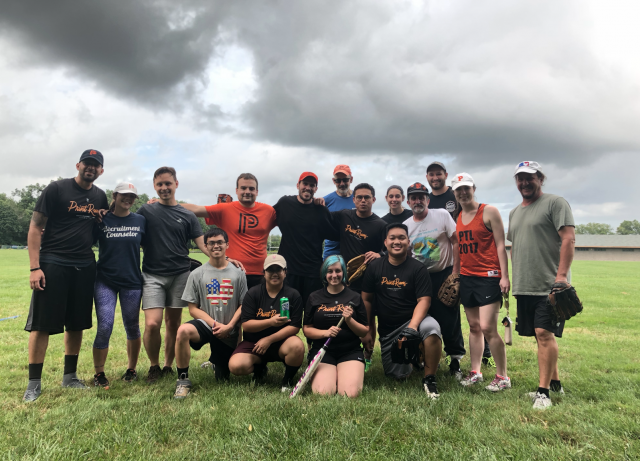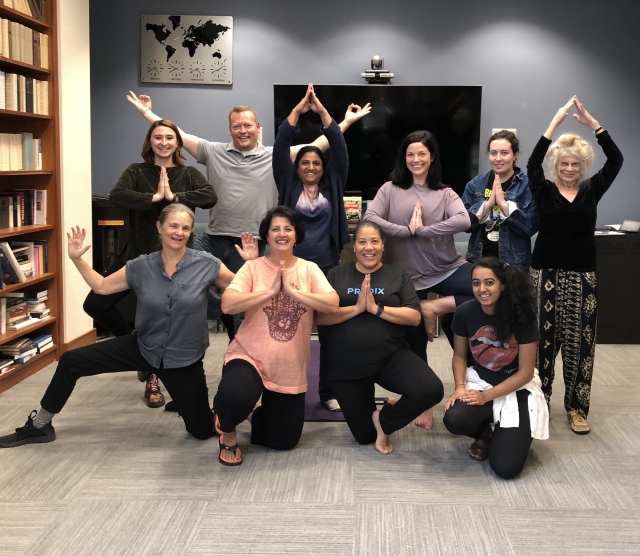In the pages and impact of each book can be found the work of as many as 35 different individuals—from editorial assistant to metadata manager—and that doesn’t include readers and listeners, which increase the individuals involved in a book in exponential ways. Publishing is a community endeavor, and has been from its origins to its present, and arguably well into its future. At PUP, every day we engage within our own community and the community at large to create our books. From cover to cover, and ePub and Audio files too, our books reflect a community of scholars, publishing experts, peer reviewers, editorial board, media, compositors, printers, booksellers, libraries, vendors and the reading public in complex and vibrant connections.
Our commitment to community scales from the very local to the global; as part of the Association of University Presses our community of university publishers works together to discuss publishing trends, share knowledge, analyze data, and evaluate and innovate best practices in scholarly publishing. As a community of global publishers we also work together in other ways; in the spring we organized the donation of 4,000+ books from a variety of AUPresses publishers to replenish the library of the National Museum in Rio de Janeiro, which suffered devastating loss in a fire in September 2018. This summer we also hosted publishers from three university presses in Latin America, for a day of information exchange and peer learning, which will help inform our own publishing to come. The connections are emblematic of our interest in the global community, as we expand our readership and communities around the world.
While books are at the center of what we do, our own staff community brings unique life experience and passions to PUP collaborations that extend beyond the life of the book. Our team continuously expands the notion of who we are and how we collaborate as a community. We’re paying increased attention to the well-being of our staff through the initiation of several ERGs (Employee Resources Groups) on mentoring, people of color, and work life integration; an equity and inclusion committee; a community building committee; and an internship committee. Our volunteer committee arranges monthly donation drives or volunteer events that support our local community, including recent donations of back-to-school supplies to HomeFront (a local organization that seeks to end homelessness in New Jersey), donations to SAVE animal shelter, Souls4Soles shoe drive, donations to Support the Girls and Princeton Period Project, Dress for Success, NJ Lions Eyeglass Recycling Center, a volunteer day with Friends of Princeton Open Space (FOPOS) at the Mountain Lakes Preserve, and work with the Oxford Hot Water Bottle program. Our staff in Woodstock and Princeton are also now enjoying October wellness month, with programming that includes team walks, mediations, gentle yoga, and chair massages.

We continue to seek out connections throughout the community; at our Princeton office, PUP regularly participates in Communiversity, Princeton’s annual festival, and staff have recently been in our local communities discussing careers in publishing—from middle-schoolers through the JA Inspire Trenton event all the way to workshops for graduate students at Princeton University to learn more about publishing as a career. And as we are on the campus of Princeton University, we engage daily with the university community, co-sponsoring author and book talks and other events, including lobby talks this week with Eric Weitz about human rights, and Leah Price about books. We promote PUP and the vitality of our affiliation with the university at events and with departments and offices on campus, and through our Editorial Board, made up of Princeton faculty that ensure the integrity of the peer review process in each of our books. On the recreational side our PUP softball team (the “Print Runs”) plays in a community of intramural softball through the University, and we include in that community former and current staff, relatives and friends of PUP, thus extending our community even larger.

Our data connects us to the world in many ways, and we have an extended community through our book database, Biblio/Virtusales. In the spring of this year, we hosted the second annual “Biblio U,” a conference of publishers from around the world who use Biblio, to learn more about the system, share information and best practice, and collaborate on improvements. Our community of fellow Biblio users from a variety of types of publishers has strengthened our use of the system and further developed our skills. Thanks to Biblio, we can also ensure the integrity of data flowing to our new press.princeton.edu website, which is also built on a foundation of community, and enabled us to grow a community through collaborations with AREA 17.
Our mission and impact, which the website now deftly conveys, wouldn’t resonate were it not for our community of authors and readers—and now, listeners, with the launch of Princeton Audio and the community of audiobookphiles this engages. This community is foremost in our mind at each moment of the publishing process, and every day our teams in Beijing, Woodstock, and Princeton work closely with one another and with authors to ensure the success of each PUP book. While our community of authors is critical to sharing the mission of expanding knowledge throughout the world, our community of readers remain at the heart of our work. We build this community through the strength of our publishing, maintaining a high quality of peer-reviewed scholarship that provides scholars in the field their specialized monographs, students textbooks in a range of courses, reference works, and books that are accessible to engaged general readers. In the end, it is all of these inspiring communities—our books making and reading communities, our local and international communities, and our community of people—that create the identity of PUP, the contributions we make to our @AUPresses community, and our ability to Read, Think, and Act.
